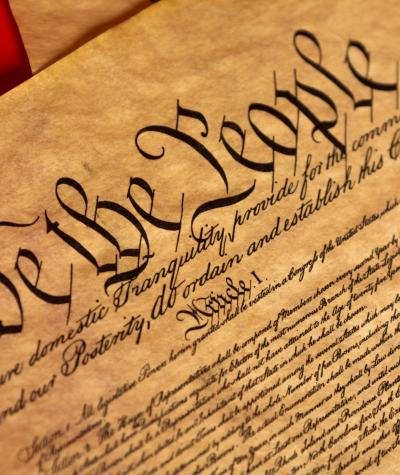The 2012 election, the first Presidential election following the Supreme Court’s decision in Citizens United v. FEC, was characterized by the dramatic rise of “dark money.” Most estimates calculate that the amount of money spent during the cycle by nonprofit groups that did not disclose their funders totaled as much as $400 million. Yet the federal response to this surge in unaccountable spending has been inaction, dysfunction and gridlock.
It is thus heartening to see states take the lead in crafting laws that would shine a light on the donors funding the anonymous ads that have become so prevalent in the wake of Citizens United. In particular, the Attorney General of New York, Eric T. Schneiderman, recently proposed regulations that would require certain nonprofit organizations to disclose their donors if they spend $10,000 or more in a year on New York election-related communications, including advertisements that expressly advocate for the election or defeat of a candidate, referendum or political party, as well as communications made within 180 days of an election that identify a particular candidate, referendum, or party. Such organizations would have to disclose in an annual report all donors of over $100 to the organization, or alternatively, if the organization used a segregated fund for its election-related spending, only those donors that funded the account.
On Wednesday, the Campaign Legal Center submitted written comments to urge adoption of the proposed regulations, emphasizing that the Supreme Court has remained overwhelmingly supportive of strong disclosure measures even as it has invalidated or narrowed substantive campaign finance restrictions. The comments, which expanded on testimony at the Attorney General’s public hearing on January 15 of this year, noted that the regulations served an array of governmental interests recognized by the Supreme Court as vital, including ensuring that voters can make informed decisions in elections and preventing corruption and the appearance of corruption in the political system. The Legal Center also noted that the regulations “serve the state’s enforcement interests by ensuring that New York is not granting a state tax subsidy to groups that are exploiting federal tax law to avoid disclosing the donors funding their electoral spending.”
The Legal Center’s comments also countered anticipated attacks on the constitutionality of the regulations. The comments acknowledged that the proposed regulations require disclosure in connection to communications that mention political parties and ballot referenda, in contrast to federal campaign finance law, which currently regulates only ads mentioning a federal candidate. But, as the Legal Center pointed out, the Supreme Court in Citizens United specifically rejected the contention that “disclosure requirements must be limited to speech that is the functional equivalent of express advocacy,” and opened the door to disclosure reaching some forms of issue advocacy.
While full disclosure in federal elections may require a series of reforms and a sizable increase in political will, elections in New York could soon become significantly more transparent with the passage of these common-sense regulations.
To read the comments submitted to the New York Attorney General, click here.
